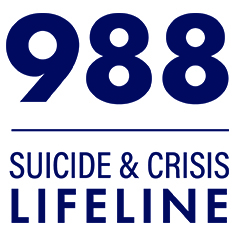Engaging & Supporting Families in Suicide Prevention

There are many ways family members and loved ones help individuals struggling with suicidal behavior. This webinar will focus on families whose loved ones are in suicidal crisis or have attempted suicide, and their crucial role in suicide prevention. This will be part of SAMHSA’s larger effort focusing on engaging and supporting families with suicidal loved ones.
While family members should not be expected to assume the role of 24-hour monitors for their loved ones (except in rare circumstances), they often are in the role of first responders and safety nets, as designated by plans post hospital discharge. However, they are often not prepared by their providers on how best to respond to their loved ones, nor on how to effectively manage their own distress in times of such high emotionality. Mental health professionals who treat suicidal patients are taught skills and strategies to be more effective in suicide prevention.
This webinar will focus on the importance of engaging families and loved ones in different phases of suicide prevention, highlighting current research in family engagement and finally sharing one example of family programming geared toward parents of suicidal teens and young adults. Participants will gain insight and awareness into challenges, opportunities and outcomes around family engagement with suicidal individuals.
Presenters:
Richard McKeon, PhD, MPH serves as the Chief for the Suicide Prevention Branch in the Center for Mental Health Services, of the Substance Abuse and Mental Health Services Administration, where he oversees all branch suicide prevention activities, including the Garrett Lee Smith State/Tribal Youth Suicide Prevention, and Campus Suicide Prevention grant programs, the National Suicide Prevention Lifeline, the Suicide Prevention Resource Center, and the Native Aspirations program. He is the Co-Chair of the Federal Working Group on Suicide Prevention.
Perry D. Hoffman, PhD is the President and co-founder of the National Education Alliance for Borderline Personality Disorder. Dr. Hoffman has worked with families for 30 years, including several grants from the National Institute of Mental Health. Dr. Hoffman initiated the early prevention and intervention effort called the Global Alliance for Early Prevention and Intervention.
Alan E. Fruzzetti, PhD is Director of the Boys DBT Program and Director of Training in Family Services for three East Programs at McLean Hospital, and Associate Professor at Harvard Medical School (appointment pending). Dr. Fruzzetti is on the Board of Directors of the National Education Alliance for Borderline Personality Disorder, the International Society for DBT, and the Linehan Institute.
Ken Norton, LICSW is the Executive Director of the NH’s chapter of the National Alliance on Mental Illness (NAMI NH). Ken led the development of NAMI NH’s Connect Suicide Prevention Program, which is designated as a National Best Practice program in suicide prevention, intervention and postvention. He has served on numerous local and national workgroups and committees related to mental illness, suicide prevention, and military and veterans and has presented nationally and internationally.
Rajeev Ramchand, PhD is Senior Behavioral Scientist with RAND Corporation. He’s an epidemiologist who studies the prevalence, prevention, and treatment of mental health and substance use disorders in at risk populations and communities, with a specific focus on suicide and suicide prevention. He also studies informal caregiving and the impact of caregiving on caregivers and care recipients, and led RAND’s 2014 study on military caregivers, Hidden Heroes.
